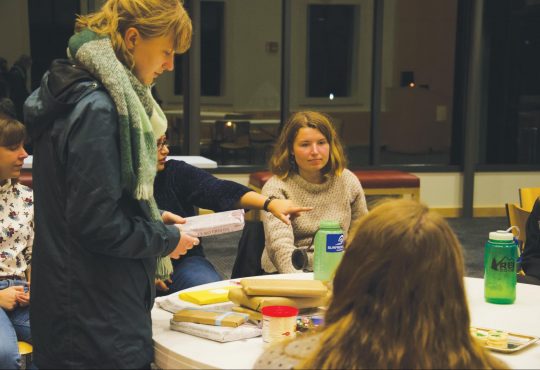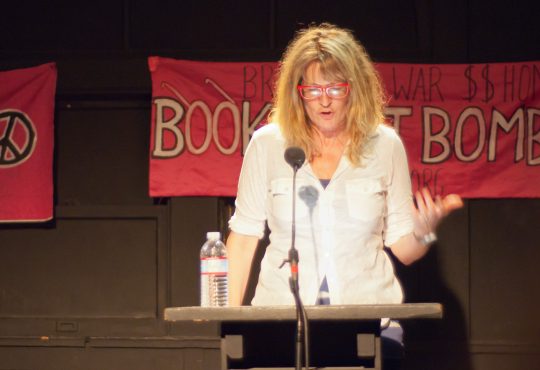
Faculty and administrators of the University of Puget Sound English department have been working overtime to restore order after an incident last week in which the entirety of Wyatt Hall tumbled down into a massive abyss that abruptly appeared on campus.
“Yeah, us English professors have been rushing around like little ants on a hill,” creative writing professor Sebastian Beets said. “Hold on a sec, I should really write that down. ‘Like little ants on a hill.’ Things are feeling a little crazy in the department right now, but I suppose I say that every semester. That’s life for you! Ooh! I have to write that down.”
Many faculty members expressed frustration regarding their new additional duties. Professors have had to jockey for new classroom space, reevaluate semester schedule to adjust for lost time and coordinate the replacement of texts and technology lost when a massive three-story building was consumed by an unexplained and terrifying hole. Professor Melinda Mapwhapster, who teaches courses on literary journalism, was particularly outspoken.
“It’s irritating. Actually, it’s more than that, it’s downright inconvenient,” Mapwhapster said. “This is not the first setback the department has experienced this semester. First, the department copy machine needed repair, then there was a paperclip shortage. …Wyatt Hall being veritably eaten by an angry earth is just the latest event in a pattern of mismanagement. It’s hard to focus, do my job and just teach with all these little distracting obstacles.”
Some professors, like translated literature teacher Professor Michael Marks, saw this most recent episode as a turning point in their relationship with the department and University. Marks took particular issue with the personal office items lost.
“There is nothing left for me here,” Marks said. “My Chia Pets are in the fissure.”
Other faculty members had a more positive outlook on the 200,000-ton building and everything inside it being destroyed by a sudden rift in the ground (and perhaps time and space).
“Problem-solving is just a part of this job,” department chair Maya Glenwyre said. “Any professor worth her salt should be prepared to adapt to new challenges, and the best ones take pleasure in it. We are not the first to be tested. To lose sight of education’s value over a little thing like some lost books, a vanished building, or a supernaturally destructive event unforseen and unfathomable, well, I’d hope that my colleagues are made of a bit sterner stuff than that.”
To illustrate her point, Glenwyre highlighted the resolve of her department by pointing to a bright spot in the incident’s aftermath: Professor Willie Bosmitt’s new course offering inspired by the events.
“It’s called ‘After the Abyss: Tracking the Chasm through Text, Time and Transit.’ It’s a course I’ve wanted to teach for a long time, but just haven’t had the proximity to a massive and terrifying geological disaster. In this class, students will examine how both professional and amateur writers have reacted to chasms, voids, sinkholes, potholes and faultlines through literature, text messaging, graffiti and public transportation, all while receiving a holistic survey of different kinds of media from the invention of writing to present-day technologies. And we’ll spend a few weeks on animal psychology. It’s a Connections Course,” Bosmitt said.
There will be a special late registration period for any students wishing to enroll in “After the Abyss: Tracking the Chasm Through Text, Time and Transit.”


